My Dog Stinks — Why Does My Dog Smell So Bad?
My Dog Stinks. Why Does My Dog Smell All the Time?
“It seems like my dog stinks no matter what I do!”
If you’ve ever said these words, we can relate. It’s frustrating and sometimes even embarrassing when your dog emits a nasty odor. Especially when it happens consistently, and try as you might, you just can’t seem to figure out why it’s happening or how to fix it.

There are a number of different causes for stinky puppy syndrome. It’s often an easy fix, though sometimes a nasty odor can be a symptom of an underlying health issue. Clean and healthy dogs are not supposed to smell terrible.
Read on, and we’ll discuss potential reasons why your doggy stinks, and what you can do to remedy the situation.
6 Reasons Why Your Dog Smells So Bad
It’s often easy to determine why a dog smells. Some dogs are known to roll around in gross stuff—when this is the cause, all your dog really needs is a good bath.
The awful smell that results from being sprayed by a skunk is also distinct and easy to identify. Fortunately, there are special products made specifically to help alleviate skunk odor.
Other smells are not so obvious, and the cause can vary from dog to dog. There are certain things to look out for when diagnosing an odor. Here are 6 of the most common.
1. Dog Dental Health
Bad breath is usually a consequence of plaque and odor-causing bacteria in your dog’s mouth. Tiny pieces of food get stuck in the teeth and produce tartar and not-so-good smells. This is pretty common. There are also certain breeds that can be more susceptible to dental issues.
(Read more about small dog teeth problems.)
Try brushing your dog’s teeth. It’s also beneficial for your pup’s dental health to make sure you’re providing them with healthy, balanced foods. Minimize ingredients such as corn and wheat in their diet, since they have a greater tendency to get stuck in your dog’s teeth.
Though bad breath is usually caused by dental problems, it’s possible it could be the result of an underlying health issue like diabetes or liver problems. If your dog’s stinky breath proves to be persistent or especially bad, visit your veterinary doctor to rule out something more serious.
2. Canine Skin Infections
Poor diet and allergic reactions can lead to skin infections and inflammation of the skin. Your dog could be suffering from yeast infections, fungal infections, or even hormonal imbalances.
This is often described as a musty, almost cheesy smell. These issues may be especially present in the overlapping folds of your dog’s skin, which can be fertile environments for odor-causing bacteria.
The natural oils secreted through the skin can get knocked out of balance. Skin that is too dry and flaky is problematic, and the same is true for skin that is too greasy. Look over your pup; does their skin look red or irritated?
Try increasing sources of healthy protein in your dog’s diet, and reduce highly processed ingredients like corn and soy. It’s also vital to keep up on hygiene. Routine grooming and bathing is super important. Check out our homemade dog shampoo recipe for a healthy homemade cleaning agent.
It’s not always easy to pinpoint the exact cause of skin issues in dogs, so it’s definitely important to contact your vet if it doesn’t clear up soon. They can prescribe medicated shampoos and pills that may be necessary to cure the infection.
3. Anal Glands
There are two glands on your canine friend’s rear end. Dogs use these glands to leave a “signature scent,” and to mark their territory. However, when they’re healthy they should not stink.
Sometimes, however, these glands can become “impacted,” meaning that the natural secretions become clogged and build up. This manifests as an unpleasant, fishy type of smell. This also usually causes pain for your poor puppy, and you may notice your dog scooting, or dragging her bottom across the ground.
This is a serious issue, and you’ll need to speak with your vet about solutions. They can prescribe medications and supplements to heal your dog’s glands.
4. Ear Infections
If you find that the yucky smell is emanating only from the dog’s ear, and not elsewhere, it could be due to an ear infection. Ear infections sometimes have a yeasty, rotten-milk kind of smell.
There are a number of different causes for this, from water being trapped in the dog’s ear to a simple lack of cleaning. Again, this is a relatively common problem. Dogs with larger, floppier ears may be more prone to ear trouble.
Cleaning your dog’s ears and keeping them dry is an important aspect of good hygiene. If the smell is mild, a basic cleaning session may remedy the issue. If the odor is severe, you should contact your veterinary office as soon as you can.
5. Dog Allergies
Dog allergies can vary, as they are unique to individual dogs. They can be triggered by dietary or environmental factors. One of the most common ways for dog allergies to present themselves is through symptoms related to the skin.
The response to allergens can cause inflammation in the skin. This can cause intense itchiness and violent scratching can lead to secondary infections and other issues. A basic bathing session will not be sufficient to treat an allergic reaction.
Dog allergies is a massive topic, and you will need to seek the counsel of your veterinary doctor for solutions. There are myriad ways to treat allergic responses depending on your dog’s particular situation, and your vet will be able to guide you to the appropriate course of action.
6. Gas
Are you telling the truth when you say, “The dog did it”?
A little gas every now and then is totally normal. But if it’s severe, and/or seems to happen constantly, it could be a sign of underlying issues. You won’t be surprised to know that it’s usually caused by something they ate.
High-fat diets and milk products can contribute to flatulence. The same is true for soy products, as well as expired or spoiled foods. Be extra attentive to what your dog is eating.
If there is an underlying health condition, it’s likely that your dog would also be experiencing other symptoms, such as nausea or diarrhea. That being said, if it seems severe and excessive, you should absolutely talk to your vet about it.
What To Do About a Stinky Dog
There are a number of things you can do to keep your four-legged friend smelling fresh and clean. Most of them are related to good hygiene and a healthy diet.
If you’re not already, start regularly brushing your dog’s coat. Getting into a routine with hygiene practices is important. Consider making a schedule. You could give your dog a bath every other Tuesday in the summer, and perhaps once a month in the winter.
A healthy diet is also crucial. You might try switching to a different dog food. Here at Bully Max, we offer a high protein dog food that fits the bill perfectly. With full label disclosure, it’s full of natural, minimally processed, human-grade ingredients and no corn or soy. It’s balanced just right to remedy the not-so-pleasant smells that may be related to your pup’s diet. We’re confident that you and your dog will love it.
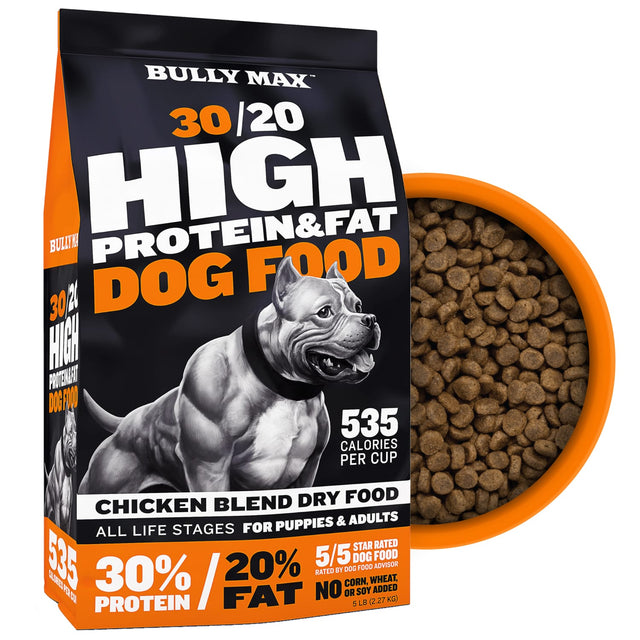

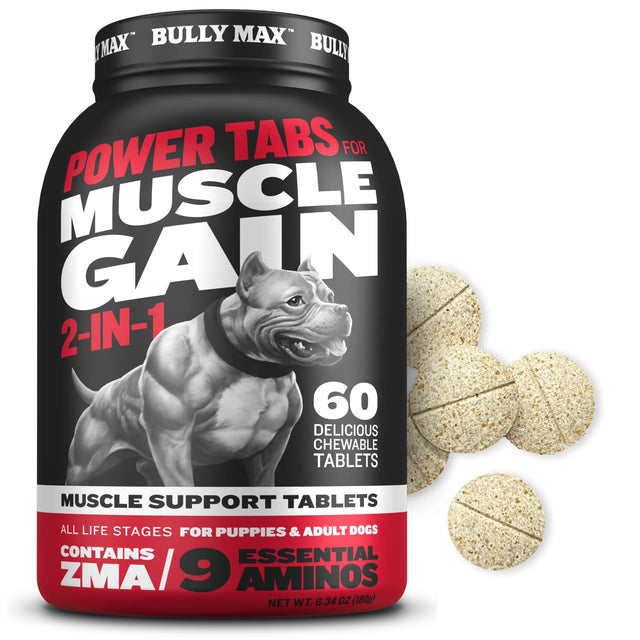
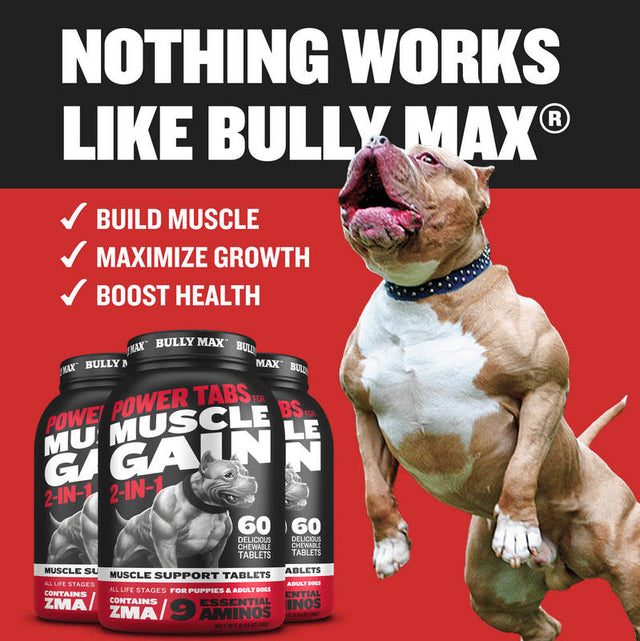
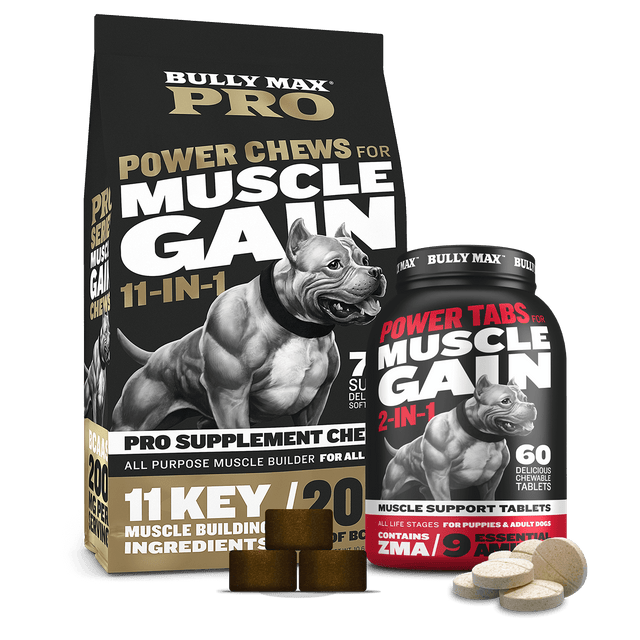
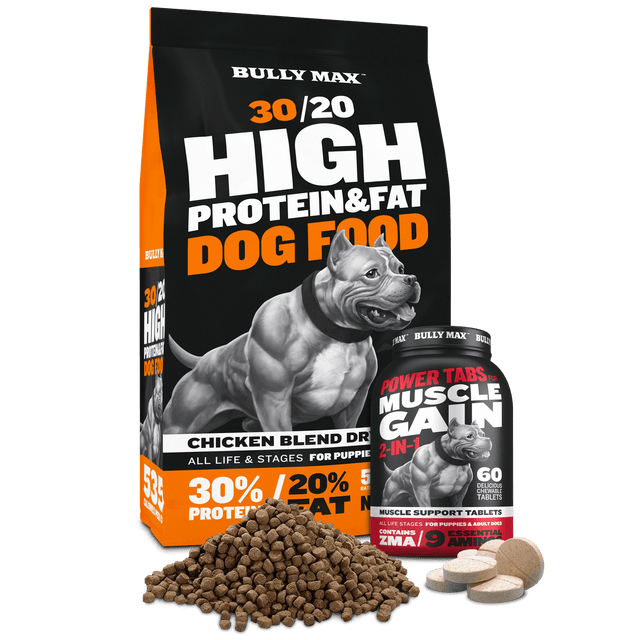
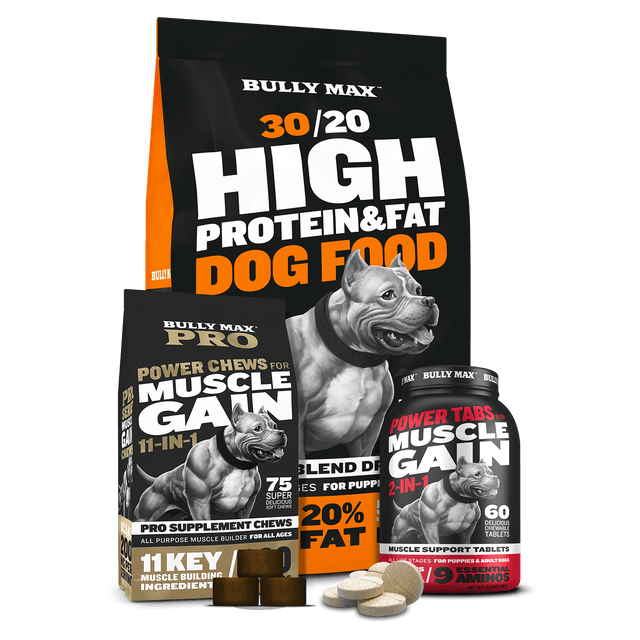
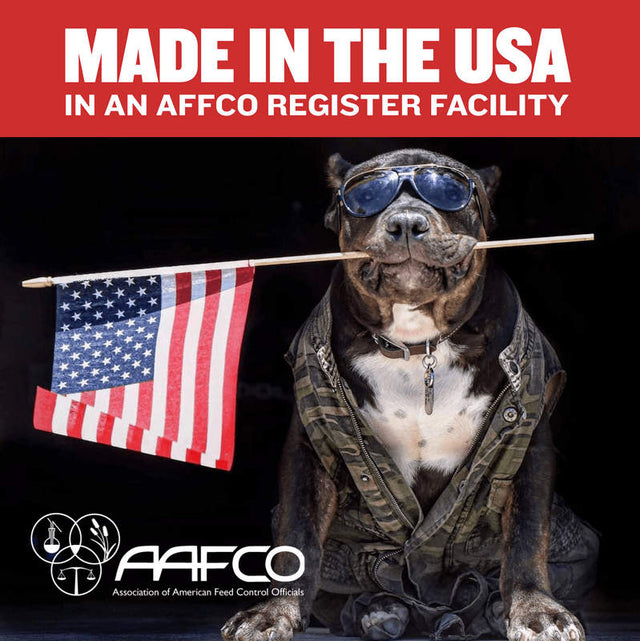
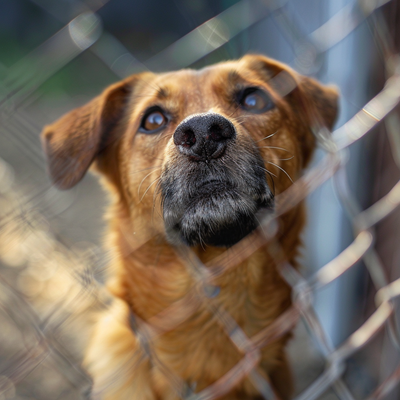
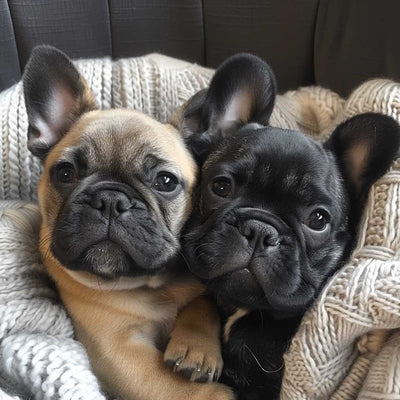

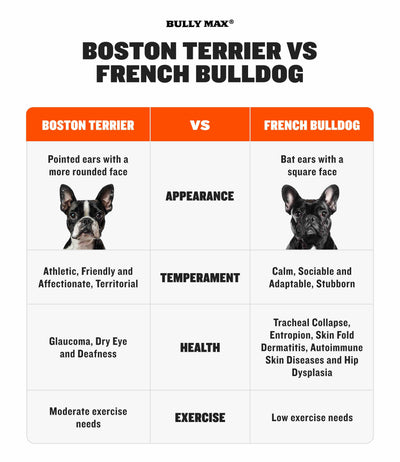
2 comments
My Chihuahua has a wet dog smell
My dog a German Sheppard has a odor problem you can smell him from 20 feet away I’ve tried every thing i can think of different shampoo s and it comes back in a day or two. Really need some help.